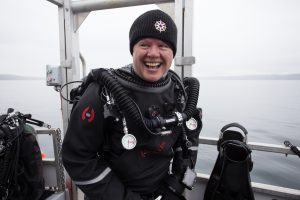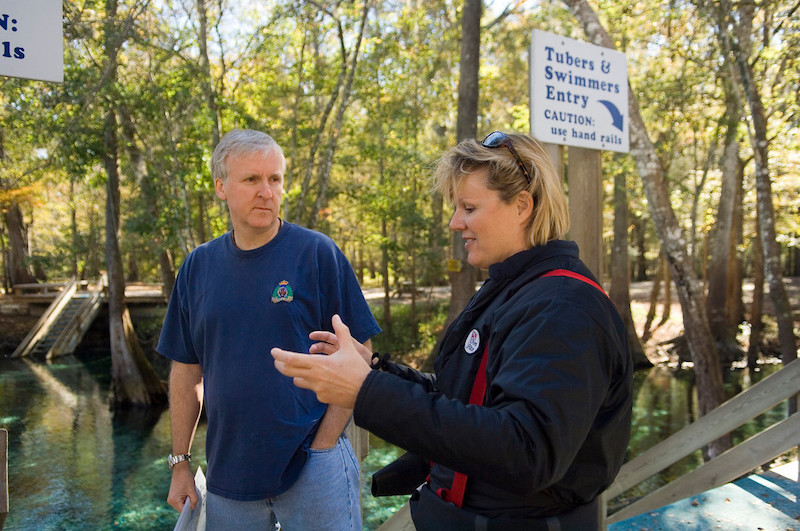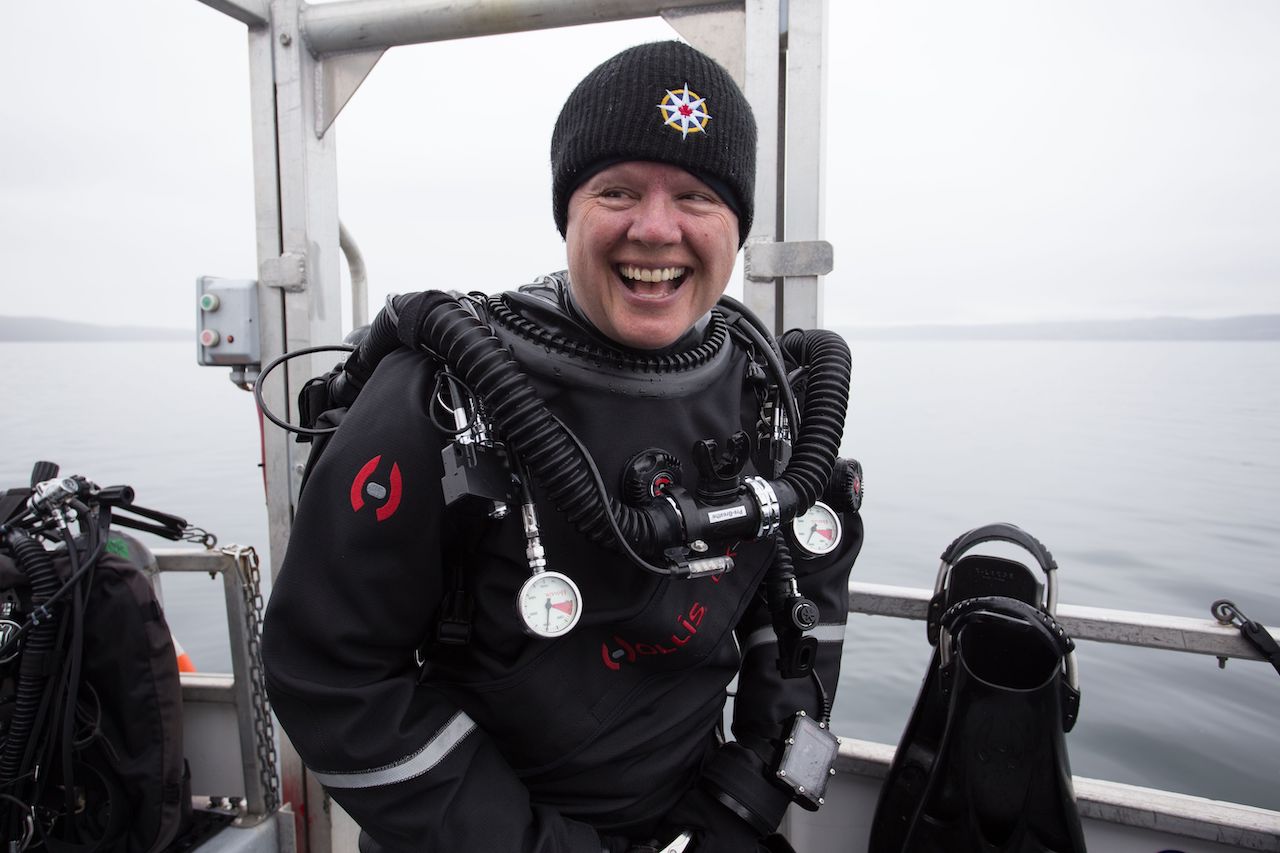
The dive had not gone well. After being submerged in temps and ensnared amidst a labyrinth of shifting Antarctic ice, Jill Heinerth was grateful to be climbing aboard her boat—alive, and out of danger. Turning to the chief scientist, she let out a relieved exhale, “The cave tried to keep us today,” she told the researcher.
Heinerth has many harrowing experiences like this under her belt. Even though the exploratory dive had been dangerous, Heinerth felt it was worth it.
“We were very fortunate to survive that dive [in Antarctica], and several of the dives on that project. But I still feel that it’s worth it. [My diving] has given me a platform to talk about the changing planet, and especially now, when we’re losing the ice cover, so it served a purpose. All of the dives that I do and the expeditions that I undertake have to serve some purpose. I look back on that particular experience and think that it was scary, it was terrifying, but definitely also worthwhile.”
By her own admission, Heinerth isn’t fearless—just risk averse. Her new book, Into The Planet, is written about the topic of fear and the art of overcoming. The average lay person who hears about what she does usually tells her, “Oh my God, you’re so brave! You’re so fearless.”
“I can’t control what happened. I can’t control what’s going to happen. But what I can do is take the next best step forward.”
However, she maintains that that’s not the case at all, that instead her fear acts as a catalyst for what she does and is what enables her to maintain a consistent level of safety in her diving. She places a premium on selecting dive partners who also have a healthy dose of fear. “I want to dive with other people who are afraid because we both care about the outcomes of our actions.”
Part of what allows Heinerth to take on her fear directly is by viewing it logically as a problem to be solved, not an overwhelming, potentially lethal obstacle. When things don’t go well and she experiences a failure, Jill frames it in terms of what she calls ”discovery learning.”
“I can’t change any of that,” she explains. “But what I can do is do something with it and move forward in a positive way. I think that’s important. …There are always dives where I learn something. I can look back on my younger self and go: ‘What was I thinking?’ But that was my younger self. I learned something from it and I’m a better diver today than I was then, I’m a more empathetic human being and certainly better at helping others who are facing similar situations.”

Having such a storied career means that Jill has seen her fair share of accidents and stressful situations. So we asked her what her first steps are when things don’t go according to plan.
Hollis: What are the first things you do when a dive goes poorly?
JH: When something bad happens, you have an immediate physiological response. Your heart starts to race and your mind erupts into a million and one thoughts. I try to immediately take a deep, slow breath, and think to myself, “Emotions, you won’t serve me well right now.”
Just take that first deep breath, then another. It’s almost like a battle. It’s like the angel and devil on your shoulders. The devil’s going like, ‘Crap! You gotta get home! Your husband’s going to be worried! You can’t die in this cave! The taxes aren’t finished!’
You get all kinds of weird things trying to force their way back into your mind. So you literally have to find a way to clear it and say, ‘There’s no time for this. I will honor these emotional experiences later. I’ll have a good cry, or whatever, after this is all over.’
And that’s the thing: Sometimes your circumstances can seem too huge and overwhelming. Like, ‘Oh my God, I’ve gotta get outta here. I’ve got a broken regulator, the guide line’s busted, my dive buddy’s stuck. I can’t see anything. Holy shit, what am I going to do?’
And so, survival and success can seem impossible, but I don’t allow myself the luxury to go there in my mindset. I’ll tell myself: ‘That’s too big to think about right now. The only thing I can work on is where I am right now and the immediacy of the next step forward. That’s the only thing I can control. I can’t control what happened. I can’t control what’s going to happen. But what I can do is take the next best step forward.’






 Canada
Canada Other countries
Other countries

